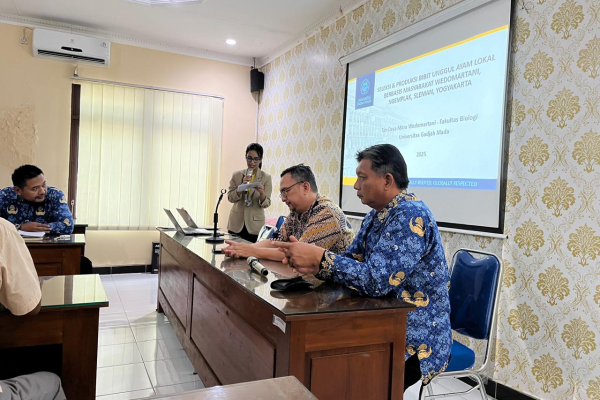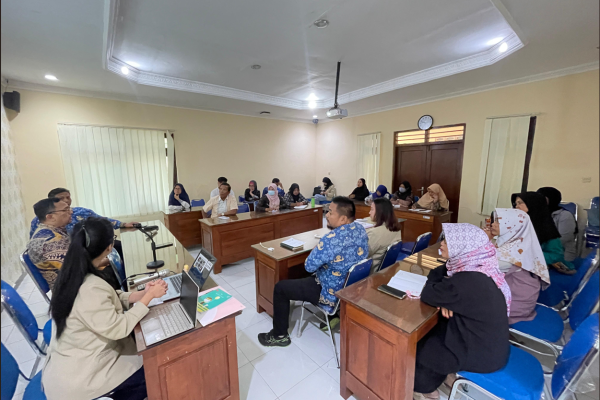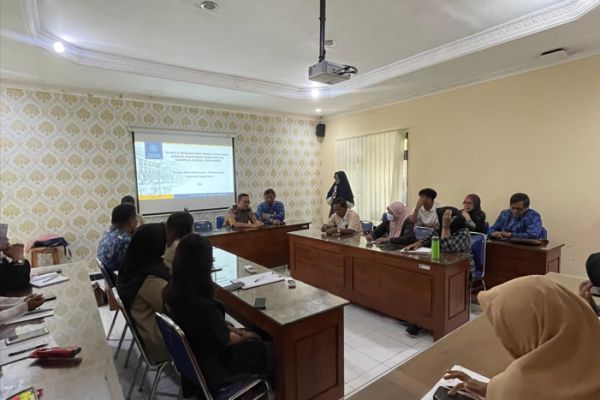The Wedomartani Village Partnership Team from the Faculty of Biology, Universitas Gadjah Mada (UGM), held an socialization on Thursday, July 17, 2025, in Kalurahan Wedomartani, Ngemplak, Sleman Regency, Yogyakarta, focusing on the development of superior local chicken breeds. This activity was a follow-up initiative from the collaboration between the Faculty of Biology, UGM, and Kalurahan Wedomartani, supported by the KKN-PPM UGM Period 2 of 2025, Unit YO019 (SDG No. 17 – Partnerships for the Goals).
The socialization opened with remarks from Dr. Ardaning Nuriliani, S.Si., M.Kes., representing the Wedomartani Village Partnership Team, Faculty of Biology, UGM. On this occasion, as a speaker Dr. med. vet. Hendry Saragih, M.P., delivered a presentation titled “Selection and Production of Superior Local Chickens Based on Community Empowerment in Wedomartani, Ngemplak, Sleman.” The socialization emphasized the importance of developing superior local chicken breeds by paying attention to various key aspects such as feed quality, animal health, cage management, and maintenance practices.
During the session, the speaker provided updated and relevant information on the proper techniques for local chicken farming, beginning with the selection of high-quality breeding stock. The event, held at Kalurahan Wedomartani, was attended by the Head of Wedomartani Village (Mr. H. Teguh Budiyanto), the Village Secretary (Mr. R. Rohmad Gunawan Hardono, S.Pd.), the Director of Bumkal Wedomartani (Mr. H. Iskandar, S.E., M.E.), representative from Faculty of Biology, UGM (Prof. Dra. Rarastoeti Pratiwi, M.Sc., Ph.D.) and representatives from farmer groups across several hamlets in Wedomartani. Participants showed strong enthusiasm for the program and actively engaged in discussions and raised questions, especially regarding chicken maintenance practices.
The speaker highlighted that raising chickens offers two key benefits. First, it helps reduce household waste through the use of organic waste as chicken feed. Second, the eggs produced can improve household nutrition and help address stunting—supporting SDGs No. 2 (Zero Hunger), No. 3 (Good Health and Well Being), and No. 12 (Responsible Consumption and Production). However, to fully achieve these benefits, the chickens must be kept healthy. The speaker emphasized three main factors for raising healthy local chickens: the use of varied feed sources such as maggots and kitchen waste, proper cage management, and an appropriate vaccination program.
This outreach activity is expected to serve as an initial step toward empowering the community to independently cultivate local chicken breeds. With the knowledge gained, residents can begin applying more effective breeding and production techniques in their environment. Going forward, similar programs should continue to be implemented sustainably in order to expand their impact. It is hoped that this initiative will contribute to improving community welfare while also supporting local food security. (Contributors: Lintang Gitacahyani and Ardaning Nuriliani)




